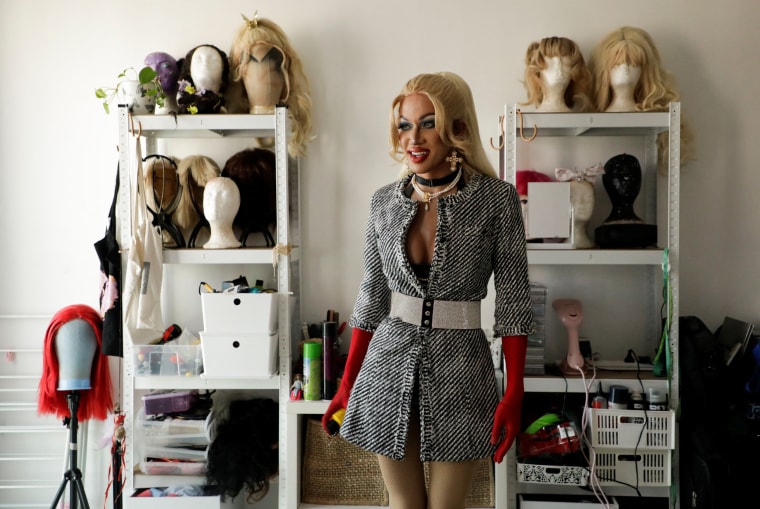With a pronounced Roman accent and a confidently assertive demeanor, a petite figure stands before an enthusiastic crowd. The people cheer as the figure emphasizes the importance of Christian values, the role of women in traditional family settings, and the threat posed by immigrants and LGBTQ+ people, associating them with the decline of what was once home to the great Roman Empire. You may, for a moment, be reminded of figures like Mussolini, Hitler, or Franco. But the figure is actually in power today. She is Italy’s first female prime minister, Giorgia Meloni.
Her rallying cry, “I am a mother, I am Italian, I am Christian,” has echoed across the internet for years. Remixes featuring Daddy Yankee have made their way to dance floors throughout Italy. Yet, few anticipated these slogans would soon form the core values of the nation’s prominent party, Brothers of Italy.
We must learn from tyrannies past.
Throughout the annals of Italian history, the evolution of rights for queer citizens has mirrored the changing tides of power and influence. It’s alarming to note that what seemed like a trajectory of positive advancement has now stagnated. A poignant example was the decline of the DDL Zan bill, a significant piece of legislation designed to protect all minorities by introducing the concept of hate crimes in the Italian legal framework. Unfortunately, it faced opposition, with right-wing critics arguing that it would impose so-called gender theories on children. The far-right Italian senate celebrated the bill’s failure, ironically to the tunes of Raffaella Carra, a pioneer for queer rights in Italy during the 1970s.
A significant turning point came in October 2022. After a series of interim governments, Italians could finally elect one. The results tilted towards the right, and faithful to their campaign promises, the chosen embarked on a journey to strip rights from groups they deemed inconsistent with the ‘traditional’ Italian ethos.
This new government is currently led by the openly neofascist party, Brothers of Italy. Notably, this party boasts the country’s first female prime minister—a milestone in Italy’s patriarchal society. Yet, her cabinet includes controversial figures like ex-interior minister Matteo Salvini, who is implicated in a naval blockade that tragically claimed 86 lives, including 35 minors. Another key member, Ignazio La Russa, is known for his fondness for fascist memorabilia. He has disturbingly wielded his influence to protect his son, Lorenzo Alapche La Russa, from a sexual assault case in Milan.
In March, another significant setback loomed with legislation that could strip same-sex parents of their parental rights unless they are the biological parent. This has led to the recent lesbian mom protests.
While surrogacy has always been prohibited in Italy, LGBTQ+ couples previously had the option of seeking surrogacy abroad and subsequently registering as parents in their local municipality. This protective shield is eroding, as demonstrated in cities like Padua, where local councils have already removed non-biological parents’ rights for the children of LGBTQ+ couples — all under the banner of “safeguarding” children.
A shadow from the past: Rome’s pointy hat
One cannot discuss Italy’s approach to LGBTQ+ rights without acknowledging the influence of the Vatican.
Despite Italy being just one of many nations rolling back LGBTQ+ rights, it holds a unique position due to its historical ties with the Catholic Church. The 1929 Lateran Treaty, a pact between Mussolini’s Kingdom of Italy and the Vatican, established Catholicism as the state religion, among other things.
Although this official alignment ended in 1984, the cultural ramifications lingered, proving to be an obstacle to advancing LGBTQ+ and reproductive rights in Italy.
And it’s precisely by weaponizing Catholic morals that anti-LGBTQ+ laws are swiftly passed.
An uncertain future
The future seems uncertain for queer Italians and their counterparts in nearby communities. The Italian government is considering a proposal to classify surrogacy as a universal criminal offense. What does this mean? In Italy, domestic criminal acts are prosecuted if committed within the country, and universal criminal acts are prosecuted no matter where they occur. Under the proposed law, if someone undergoes surrogacy abroad and then returns to Italy, they could face up to two years in prison and fines of up to 1 million euros. For perspective, other offenses in the universal crime category include acts like piracy, torture, genocide, and in some cases, terrorism.
A country that has for decades championed individualism and democratic rights, the U.S. is creating a dangerous precedent with the passage of its own anti-LGBTQ+ laws, and other countries – with the help of some U.S-grown organizations – seem to be following the lead.
Italy and the U.S. have long historical ties due to immigration waves in the early 20th century. Countries like these two are rolling backward in progress; however, a noticeable parallel can be drawn. States like New York, California, and Vermont and in a similar fashion, cities like Cagliari, Milan and Turin have responded to the hateful legislation by doing the opposite of what it instructs: creating safe havens for queer communities and, in the case of the U.S., maintaining or enhancing abortion rights.
These counter-responses are silver linings in what can otherwise feel like looming darkness. But perhaps they are also planting the seeds for more progressive movements.
The Italian government’s deliberate backpedaling on LGBTQ+ rights not only tarnishes its international reputation but also highlights a governance strategy marred by distraction and deception.
This administration campaigned vigorously on conservative platforms — promising a more affordable cost of living, decreased fuel prices, and a revolutionary flat tax. Yet, as rights are stripped away, these other promises remain conspicuously unfulfilled. The maneuver is as transparent as it is cynical: divert the public’s focus onto polarizing issues as a smokescreen for their inability to deliver on their own electoral promises.
Sound familiar?

